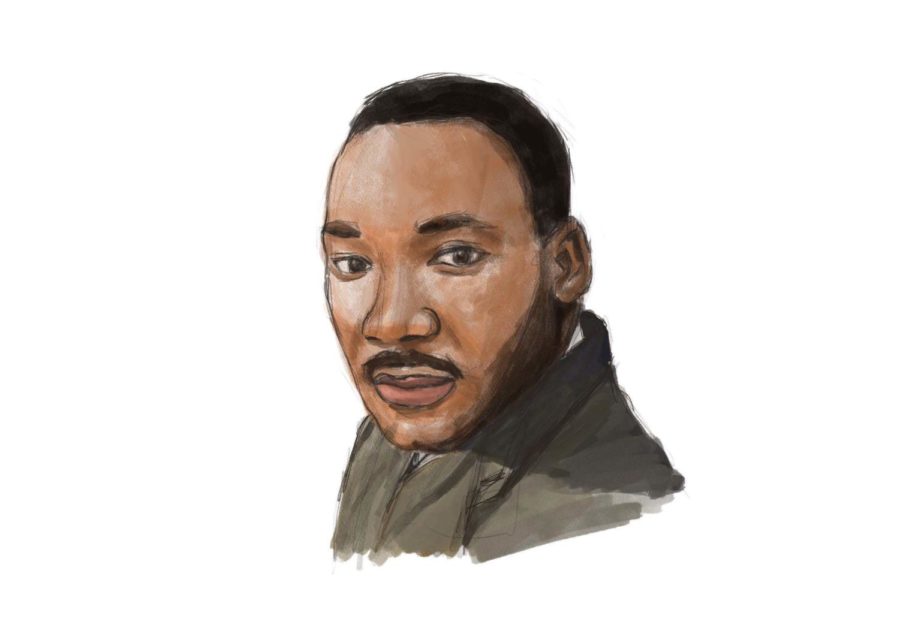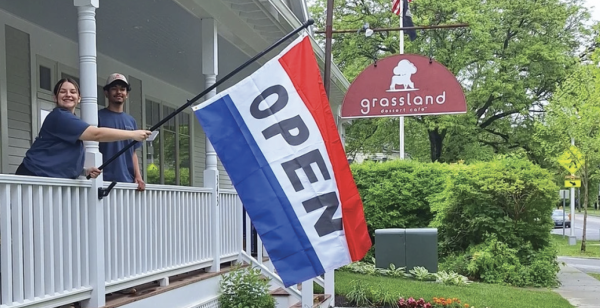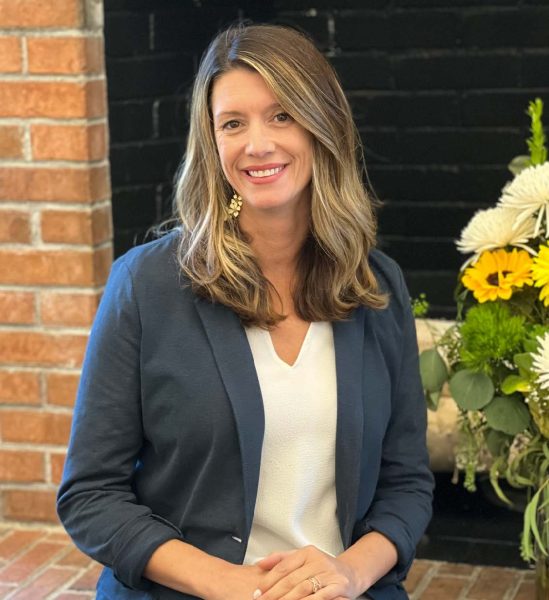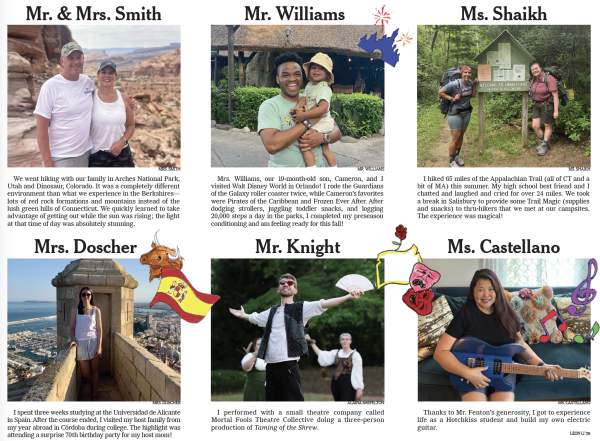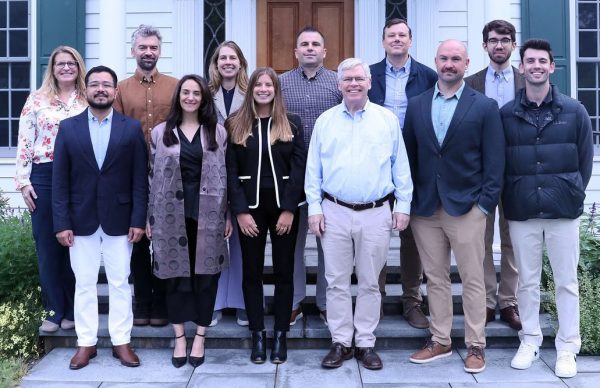School Commemorates Martin Luther King Jr.
This year, Martin Luther King Jr. Day took place via Zoom from January 16 to 17, with the theme of “Restoration, Renewal, and Resilience.” To start off the commerative holiday, students enjoyed a special dinner featuring soul food prepared by the dining service on January 16. The night ended with a virtual community fishbowl hosted by the Black and Hispanic Students Association (BaHSA).
On January 17, the school hosted an extensive workshop program in place of the regular class day. Students and faculty watched The Road to Justice, followed by a keynote address from the executive producer of the film, Mr. André Robert Lee. In the afternoon, students attended workshops that focused on various aspects of racial justice issues. While some of these workshops were affinity spaces, others welcomed everyone to attend, and the workshop hosts included guest speakers, alumni, students, and faculty. Isaiah Stephens ’25, a student on the planning committee, said, “The most important lesson I took away was that empathy is very powerful and something we all need to have for our peers. [It’s important that] the school places [emphasis] on MLK day because we all need to stop and take the time to celebrate Dr. King’s life.”
Behind the Scenes
In their initial meeting at the end of 2021, the MLK Jr. Day Planning Committee had planned on creating a celebratory mood by having a dance, a plus one dinner, and a performance from comedian Angel Gaines. However, due to the school’s delayed opening after winter break, the programming became virtual, and the committee made adjustments accordingly.
Aliya Nurmohamed ’22, a planning committee member and co-head of the Council for Diversity & Inclusion, reflected upon the importance of including student voices in the event planning process. Nurmohamed said, “Students have insider information, which faculty sometimes won’t notice or have the ability to see.”
Workshop Programming
Road to Justice
After his keynote address, Mr. Lee led a follow-up workshop titled “Road to Justice,” focusing on how the education of social justice is represented through filmmaking. For Mr. Lee, the workshop allowed him to reflect on how slavery impacted his own ancestors. He said, “Leading this workshop is my way to connect back with the family that I never got to know.”
Civil Rights Trivia
Members of the Quizbowl leadership team, including Cooper Roh ’22, Jack McGlinn ’22, Yihan Ding ’22, Huck Whittemore ’22, Alex Tolis ’23, and Elliot Marken ’24, organized a Civil Rights Trivia game. Created in 2019, the workshop has evolved to be a tradition on MLK Jr. Day. Players were split into breakout rooms with a host member who read questions and tallied scores. The game took place over six rounds with the questions organized in ascending difficulty.
Specifically, the questions were created with the goal of teaching the lesser-known figures and events that defined the civil rights movement. Roh said, “Popular history often gets a couple of things wrong and overshadows really important people and social forces… For me, I get to use it as a reminder that there’s a lot more than [what] meets the eye when it comes to history and holidays.”
Paige Dzenutis ’23, a participant of the trivia, said, “I’ve never learned about the civil rights movement, especially the section on unsung heroes, in such a novel and intriguing way.”
Reflections from Remote Learning
Annie Dong ’23, Sungbu Ko ’23, and Ms. Nora Yasumura led the “Reflections from Remote Learning” affinity space. Pan-Asian international students who completed remote learning from Asia for last year were invited to attend the workshop. Participants exchanged their experiences as remote learners and how these experiences impacted their identities as international students.
These discussions allowed the topic of remote learning, which rarely focuses on the emotional and personal aspects of students, to be presented in a formal setting. For Dong, the workshop connected to the main theme of the MLK Jr. Day programming: “Restoration, Renewal, and Resilience.” She said, “We’ve learned from Dr. King [that] it is important to unite with others [of our shared] identity because understanding that our experiences are interconnected and shared… is what helps people survive hardships the most.”
For school members of various identities, the workshops bridged their personal experiences with the broader world through social justice issues. More importantly, they are opportunities for the community to come together and commemorate the work of Dr. King. Mr. Lee said, “Honoring and remembering the work of Dr. King while thinking about what it means to serve your fellow human beings in an effort to improve the world…is powerful.”
The Road to Justice
Students and faculty watched The Road to Justice, a documentary chosen by the planning committee to set the tone for the school’s day. In the film, two groups tour the American south to visit historical locations which hold memories of the racial injustices. From older people who witnessed segregation and protests in the 1960s to young middle schoolers who are just gaining awareness, the participants gain insight and learn on the journey. The audience hears from Bill, a traveler whose grandmother was enslaved and grandfather was lynched, and Doug and Katherine, two senior white siblings who return to Birmingham, Alabama for the first time since they were children. One middle school girl is the same age as Emmett Till when he was brutally murdered. Emotional content comes through in interviews with Sylvestor Hoover, a former sharecropper and Hezekiah Watkins, a Freedom Rider who was swept into the movement and spent time on death row as a 13- year-old child. Ultimately, “the film is a testament to the power of place and direct experience in creating transformational change.”

